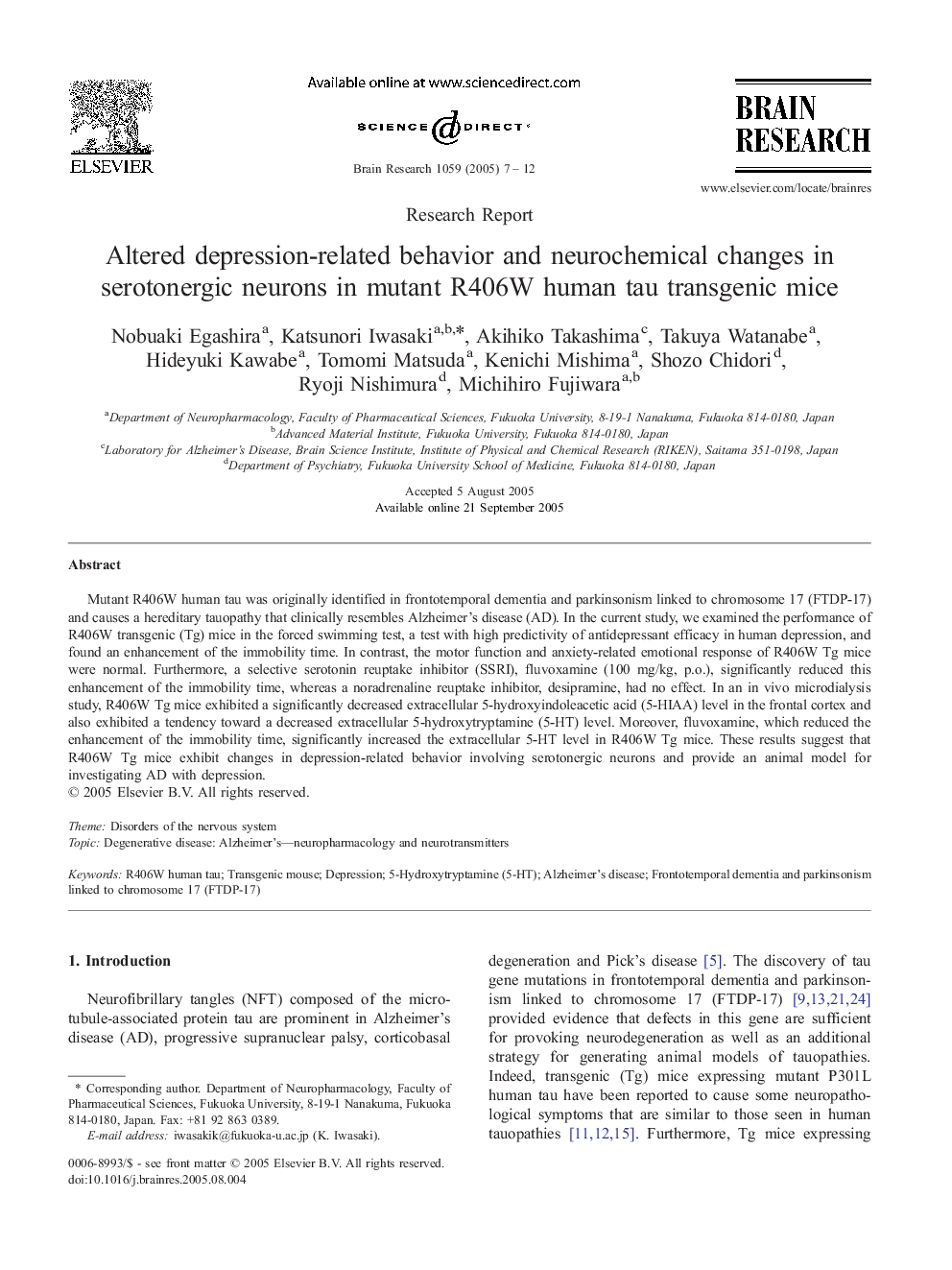| Article ID | Journal | Published Year | Pages | File Type |
|---|---|---|---|---|
| 9415837 | Brain Research | 2005 | 6 Pages |
Abstract
Mutant R406W human tau was originally identified in frontotemporal dementia and parkinsonism linked to chromosome 17 (FTDP-17) and causes a hereditary tauopathy that clinically resembles Alzheimer's disease (AD). In the current study, we examined the performance of R406W transgenic (Tg) mice in the forced swimming test, a test with high predictivity of antidepressant efficacy in human depression, and found an enhancement of the immobility time. In contrast, the motor function and anxiety-related emotional response of R406W Tg mice were normal. Furthermore, a selective serotonin reuptake inhibitor (SSRI), fluvoxamine (100 mg/kg, p.o.), significantly reduced this enhancement of the immobility time, whereas a noradrenaline reuptake inhibitor, desipramine, had no effect. In an in vivo microdialysis study, R406W Tg mice exhibited a significantly decreased extracellular 5-hydroxyindoleacetic acid (5-HIAA) level in the frontal cortex and also exhibited a tendency toward a decreased extracellular 5-hydroxytryptamine (5-HT) level. Moreover, fluvoxamine, which reduced the enhancement of the immobility time, significantly increased the extracellular 5-HT level in R406W Tg mice. These results suggest that R406W Tg mice exhibit changes in depression-related behavior involving serotonergic neurons and provide an animal model for investigating AD with depression.
Keywords
Related Topics
Life Sciences
Neuroscience
Neuroscience (General)
Authors
Nobuaki Egashira, Katsunori Iwasaki, Akihiko Takashima, Takuya Watanabe, Hideyuki Kawabe, Tomomi Matsuda, Kenichi Mishima, Shozo Chidori, Ryoji Nishimura, Michihiro Fujiwara,
